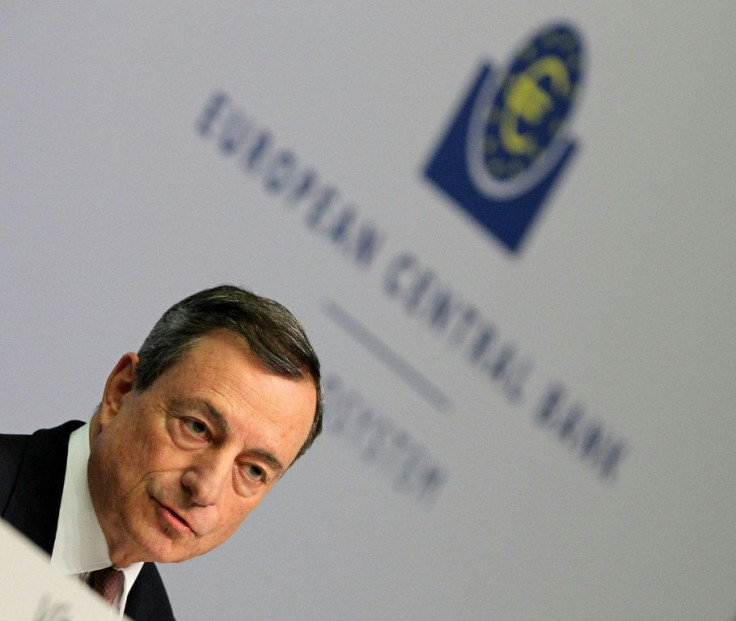ECB Account Reveals Deep Divisions Over Stimulus

European Central Bank governors were divided as never before over their decision last month to re-launch "quantitative easing" (QE) mass bond-buying, an official account of the meeting showed Thursday, underscoring an already bitter public debate.
While "all members agreed that a further easing of the monetary policy stance was warranted" to boost growth and inflation in the 19-nation eurozone, the split came over what form the loosening should take.
A proposed "package" included a lowering a key interest rate further into negative territory, shielding some of banks' deposits in Frankfurt from the resulting charges and restarting QE.
There was a "clear majority" for relaunching bond-buying -- which amounted to 2.6 trillion euros ($2.9 trillion) in a first iteration between 2015 and 2018.
But media reports and public statements suggest council members representing most of the eurozone's biggest economies including Germany, France and the Netherlands were opposed.
Some judged bond-buying would have limited effect given market conditions, while others labelled them "an instrument of last resort which should only be deployed in the event of more severe contingencies".
One governor warned that the ECB could even see itself driven by markets to continually increase bond purchases, overstepping self-imposed limits, without increasing inflation to its just-below-two-percent target.
Meanwhile there was also controversy over the "tiering" mechanism to shield some bank deposits from negative rates.
That could undermine the negative rates' goal of encouraging banks to lend more into the real economy rather than socking away cash, some governors warned.
Despite the intense debate, president Mario Draghi "concluded that all members agreed on the need to act in response to the continued shortfall of inflation... and that a clear majority of members supported the proposed measures."
From the account, it is clear that "the 'reservations' were about individual elements of the package, not the rationale" of lifting inflation in an economy mired in uncertainty over the US-China trade war and other external risks, Pictet Wealth Management strategist Frederik Ducrozet commented via Twitter.
"This is what we need to hear from the dissenters rather than their moaning and groaning," he added, in a jab at the likes of German central bank chief Jens Weidmann and the Netherlands' Klaas Knot, who gave interviews soon after the meeting blasting the ECB's decisions.
German ECB board member Sabine Lautenschlaeger even announced her resignation soon after, in a move triggered by the September measures.
"It is not the first time in ECB history that there have been dissenting voices in the Governing Council, but they have rarely been as loud and persistent as they are now," said ING bank economist Carsten Brzeski.
Incoming boss Christine Lagarde's "first task as new ECB president will be to urgently fix the rift," he added.
© Copyright AFP {{Year}}. All rights reserved.





















